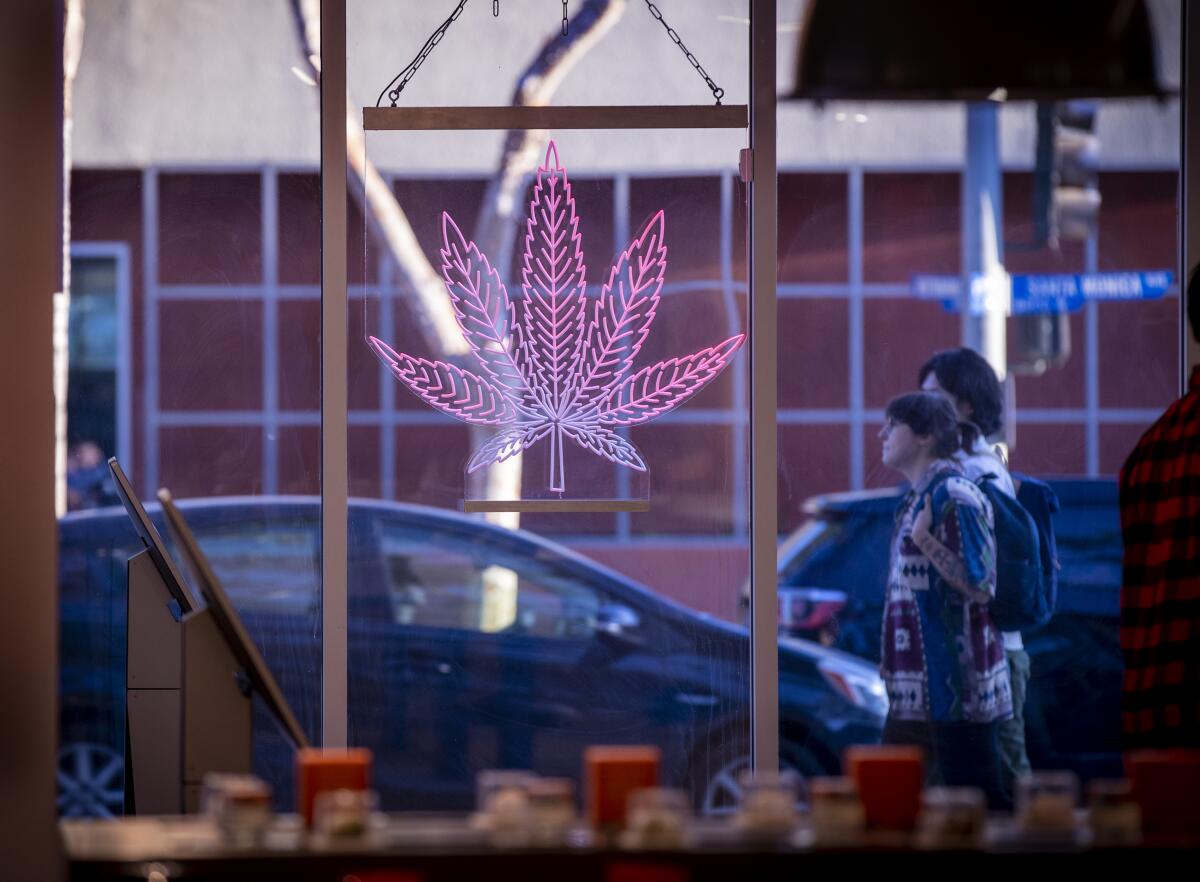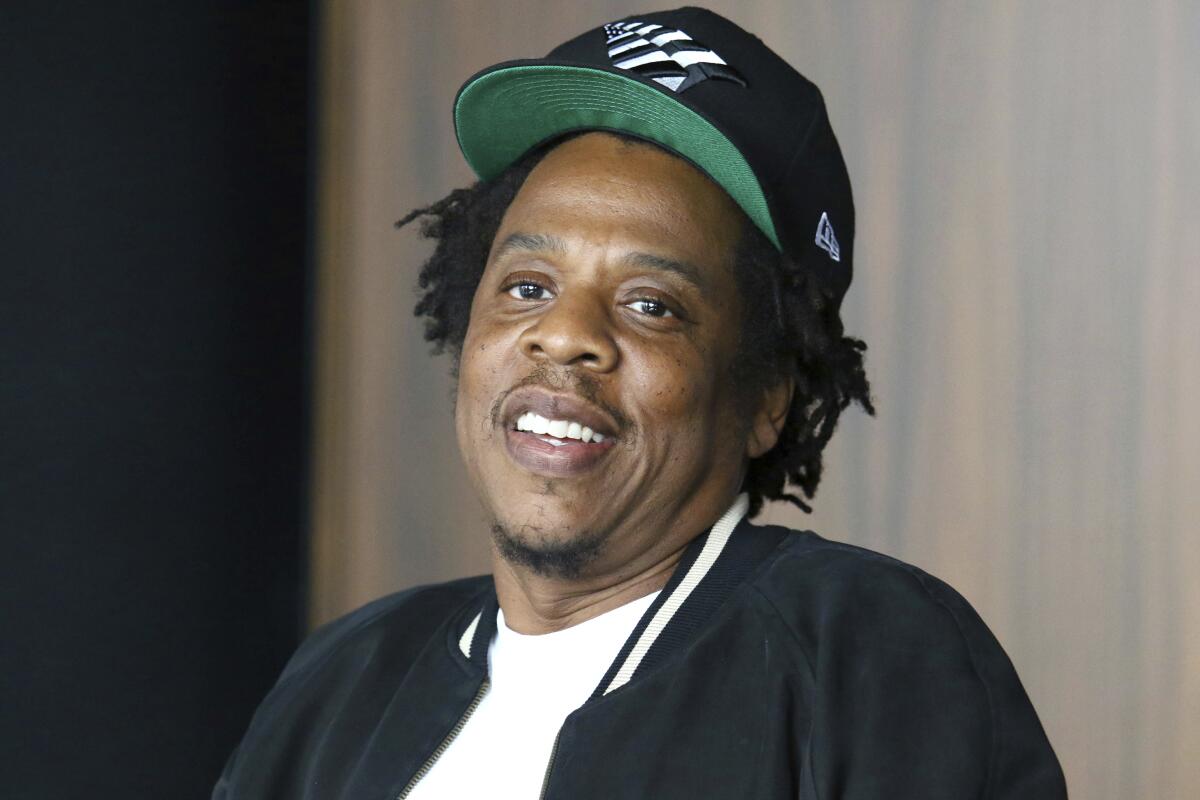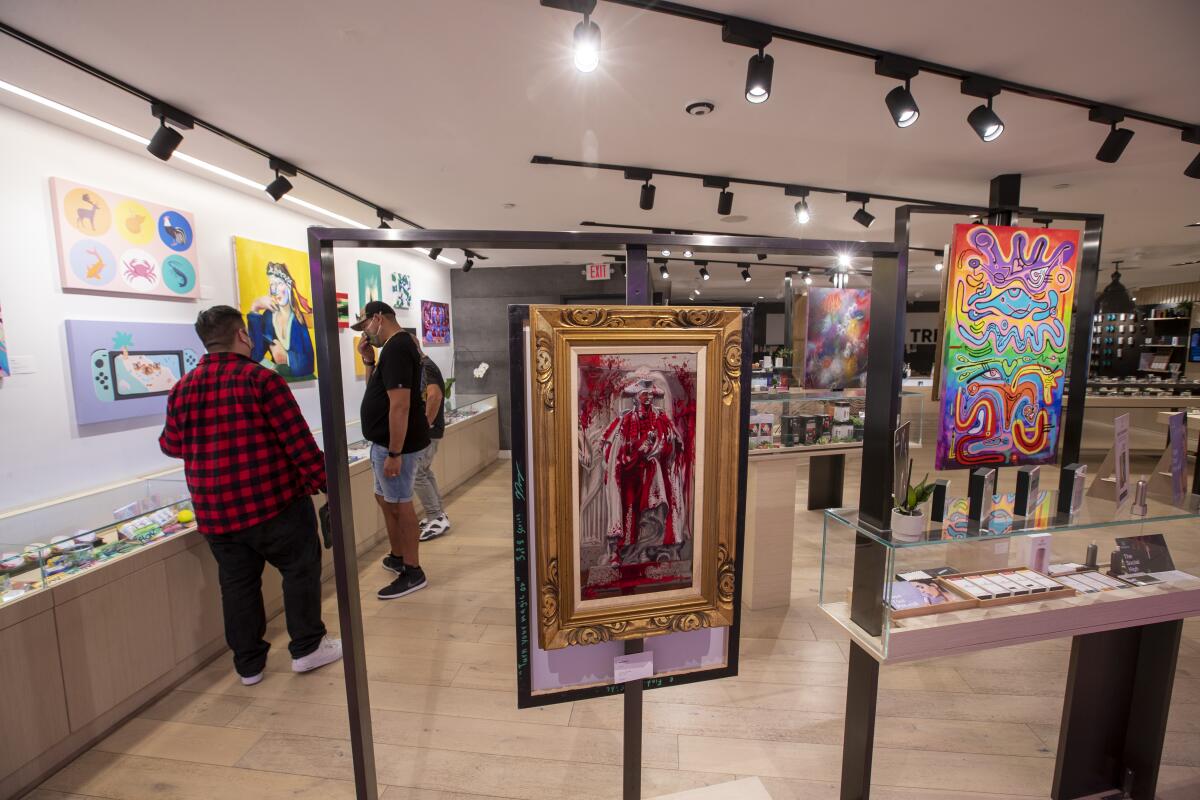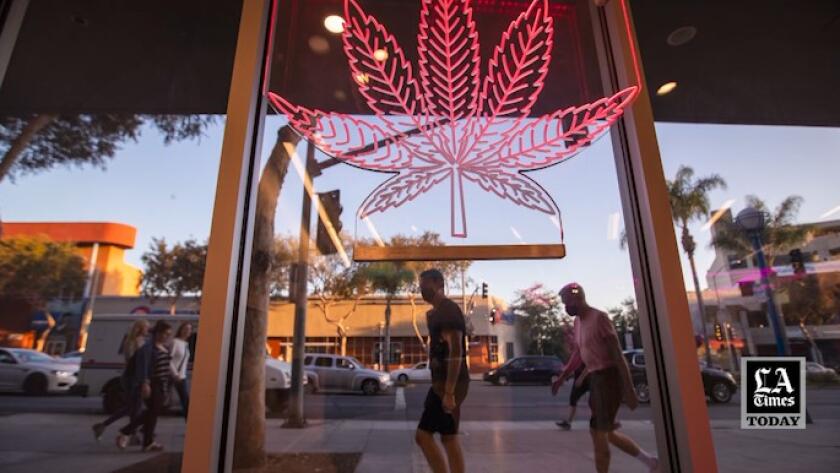This tiny city wants to become the Amsterdam of the far West — and Jay-Z seems to approve

During the days of Prohibition, West Hollywood hosted speakeasy bars and gambling joints.
During the rock revolution of the 1960s, the nightclubs on the Sunset Strip welcomed groundbreaking bands such as the Doors and Led Zeppelin.
And when the AIDS epidemic hit in the 1980s, the city opened some of the nation’s first medical marijuana dispensaries.
Now West Hollywood is aiming for a new distinction, as a sort of Amsterdam of the far West, fusing California’s recreational weed culture with the city’s own fun and creative vibe.
Home to six dispensaries, the tiny city plans to approve as many as 40 cannabis permits over the next year or so, part of a drive by a group of cannabis operators to promote the city as a global destination for pot tourism under the moniker Emerald Village.

Bolstering the effort is the star power of a handful of A-list investors, including rapper Jay-Z, actors Patricia Arquette and Woody Harrelson, and comedian Bill Maher.
“People who wouldn’t otherwise come to West Hollywood will come for the celebrity factor,” said Scott Schmidt, executive director of the trade group behind the project.
Part of the distinction will come from the city’s highly concentrated ambition: With only 35,000 residents in less than two square miles, West Hollywood is expected to have one of the highest numbers of cannabis businesses per capita in the world, Schmidt said.
Today, the city has one cannabis retailer for every 5,959 residents, according to a Times calculation based on city data. By comparison, Los Angeles has one cannabis retailer for every 18,528 residents.
The Parent Co., a cannabis enterprise backed by Jay-Z, recently purchased Calma, a West Hollywood dispensary. Arquette is an investor in a cannabis lounge set to open soon, and Harrelson and Maher are backing a dispensary and lounge that is under construction, city officials said.
Celebs aren’t the only ones jumping into the pot mecca campaign.
“Applicants have been lining up for these licenses,” said John Leonard, community and legislative affairs manager for West Hollywood. The city received more than 300 applications for eight licenses to operate retail dispensaries in 2018, he said.
There has been almost no opposition by residents, West Hollywood Mayor Lauren Meister said in an interview.
“We have always been a little edgy, and I think this fits in with our personality,” she said.
Eric Avila, a historian of urban culture at UCLA, said the city’s “permissiveness, experimentation and some would say progressiveness” are features that “play into West Hollywood becoming the new Amsterdam of the U.S. in terms of cannabis.”
City and business leaders hope the brand refresh will draw big-spending tourists and upscale locals to the planned businesses, where visitors will be able to smoke, eat or imbibe their weed of choice in a range of settings.
MedMen Enterprises, a publicly traded company headquartered in Culver City, hopes to add a lounge to its West Hollywood store, which was one of the city’s first retail outlets, said Chief Revenue Officer Tracy McCourt.
Barely a mile away on Santa Monica Boulevard, in a three-story building between a bank and a sandwich shop, the Artist Tree looks more like an art gallery than a pot shop from its entrance. Dramatic lighting illuminates art that is displayed on the walls and hangs from the ceiling, a gallery curated to be enjoyed best while under the influence of cannabis.
The store, among the first to open as an Emerald Village destination, is also a dispensary: Among the art, display cases and cabinets offer 850 cannabis-related products, including balms, edibles, pipes, tinctures and cannabis plants.
The Artist Tree is in the process of opening an open-air patio lounge, with a food and cannabis menu, said co-founder Lauren Fontein. The business already has a VIP lounge where clients can learn about the latest cannabis brands in a private setting.
“If people know about it, they will come and benefit all of us,” Fontein said of the city’s cannabis-capital aspirations.
West Hollywood was one of the first cities in the state to approve licenses for retail cannabis outlets after California voters in 2016 approved Proposition 64, allowing the sale and use of cannabis for recreational purposes.
The proposed new additions will be high-end businesses tailored to fit in with the city’s many trendy restaurants and boutique shops, said West Hollywood Chamber of Commerce President Genevieve Morrill.
“We are bringing in some really high-end, wonderful concepts,” she said, adding that Arquette’s proposed lounge will host gatherings for the LGBTQ community, among other events.
The timing seems right: Cannabis sales in California have been on the rise since pandemic lockdowns began last year and the state declared dispensary staff “essential workers.” The state collected $817 million in taxes from cannabis businesses in fiscal year 2020-21, 55% higher than the total for the previous year.
The number of licensed distributors, growers and retailers in the state has more than doubled in the last two years, from 5,715 in the fall of 2019 to 12,169 today, according to the state Department of Cannabis Control.
Cannabis businesses now generate about $2.2 million a year in taxes for West Hollywood. City officials expect to collect up to $6 million once all licensed businesses open.

“It should also be noted that the city has not seen a significant decrease in tax receipts from existing [cannabis] businesses as new ones have opened, indicating that there is capacity in the market for continued growth,” according to a city report issued in April.
Federal law still considers cannabis an illegal substance, which means most banks are staying clear of working with marijuana businesses for fear of running afoul of the federal government. Still, many cannabis businesses are now able to use new financial processes such as Point of Banking, also known as cashless ATMs, and Automated Clearing Houses to allow customers to pay with credit and debit cards.
“We are miles ahead of where we were a few years ago,” said Elizabeth Ashford, a spokesperson for Eaze, the state’s largest cannabis delivery company.
State cannabis laws prohibit advertising on billboards and anywhere near schools, among other restrictions, making any advertising blitz a challenge. For now, the cannabis operators in West Hollywood have tried to promote Emerald Village through social media influencers, an Instagram account and at large gatherings such as the Palm Springs Pride Festival.
Mara Stusser, general manager of Calma, the all-female-run dispensary that Jay-Z’s company bought, said opening more dispensaries in West Hollywood will help eliminate the stigma still attached to cannabis for some.
Tour buses loaded with wide-eyed tourists already stop at the store on a regular basis. “When they come in, they are overwhelmed by how much products we have,” Stusser said.
Watch L.A. Times Today at 7 p.m. on Spectrum News 1 on Channel 1 or live stream on the Spectrum News App. Palos Verdes Peninsula and Orange County viewers can watch on Cox Systems on channel 99.
More to Read
Sign up for Essential California
The most important California stories and recommendations in your inbox every morning.
You may occasionally receive promotional content from the Los Angeles Times.












